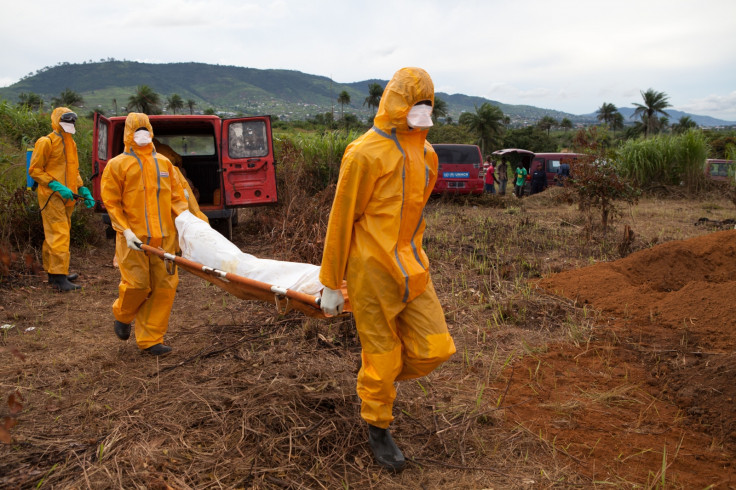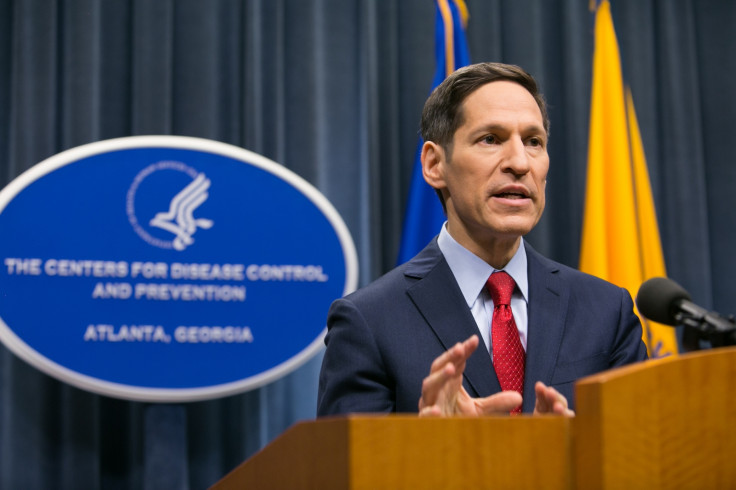Ebola Outbreak: Why the Fear Factor is as Deadly as the Virus

Anxiety over the Ebola outbreak has garnered increasing media attention as the death toll of the virus reaches unprecedented levels. Now, nearly two-thirds of Americans say they want flight restrictions from Ebola-stricken countries in west Africa, according to a poll from the Washington Post and ABC News.
Over 4,000 people have been killed by the virus since March, almost exclusively in Liberia, Sierra Leone, Guinea and Nigeria. But fears of the virus surpassing the borders of Africa has gripped the world, with US and UK policymakers calling for travel bans and greater screening at airports.
But it is this fear of Ebola itself that is becoming a primary problem in tackling the disease and preventing its spread.
Do travel restrictions really work?
One of the most popular arguments in the rhetoric around the crisis is to isolate west Africa, closing off the US, UK and other countries to travellers from the region. Yet health experts have said such procedures are only put in place to quell public fears, rather than offer any real boost to public health security.
With no vaccine and no cure, what's vitally important is that efforts to tackle Ebola are made at source
Tom Frieden, director of the Centers for Disease Control and Prevention, said sealing borders will only heighten the risk of a global pandemic, exacerbating the crisis in West Africa.
"Even when governments restrict travel and trade, people in affected countries still find a way to move and it is even harder to track them systematically," he said.
By putting flight restrictions in place, the hampering of the movement of air workers and supplies could actually increase the spread of Ebola. And such restrictions pose a knock-on threat to the treatment of other diseases, such as malaria, tuberculosis and HIV, which have killed hundreds of thousands of people this year alone.
Health officials on the frontline of the crisis are universal in their theory that the disease can only be stopped at its source.
Speaking to IBTimes UK, Jane Moyo, a spokesperson for ActionAid, said this was vitally important.
"With no vaccine and no cure, what's vitally important is that efforts to tackle Ebola are made at source," she explained. "This is as important for west Africa as it is for the rest of the world. That means health education campaigns, contact tracing and quarantine are as vitally important as medical treatment.
"We shouldn't forget that those most at risk are people living in poverty in west Africa and they deserve the world's compassion and aid rather than condemnation."

Healthcare resources make a difference
The fear of Ebola spreading to the US and other states outside of west Africa is understandable, but western healthcare is a relatively impenetrable barrier – in comparison to healthcare infrastructures in Liberia and Sierra Leone. It was reported earlier this month that in Nigeria, where healthcare is more organised, Ebola has largely been contained.
In the US and UK, an adequate number of healthcare workers, disease surveillance mechanisms, public sanitation, education and communication infrastructures all work together to prevent the spread of viruses. The lack of such resources in the West African countries affected have left thousands of people in danger of infection.
Even when governments restrict travel and trade, people in affected countries still find a way to move and it is even harder to track them systematically
Recently, the US has recorded its first cases of the Ebola virus. Thomas Eric Duncan, a Liberian man who travelled to Dallas in Texas from Monrovia, died receiving hospital treatment. The nurse caring for him, 26-year-old Nina Pham, tested positive for the virus this week, suggesting Ebola had begun its purge of the US.
Pham's diagnosis is sobering and fears sparked US health officials to review how future infections are handled. But the two cases highlight another important fact, that of the nearly 50 people exposed to Ebola before Pham, none have been diagnosed with the disease.
Of the five American Ebola patients who were repatriated after contracting the virus in west Africa, three have made full recoveries. According to the Guardian, one has requested anonymity but said on Twitter that he feels better.
Impact on the West African economy
Fears of the virus spreading, and the consequent calls to restrict travel from West Africa, threatens to devastate the economies of the region – further limiting their health systems.
According to the World Bank, the outbreak has the potential to cost West African economies up to $33bn (£21bn). Last week, the annual meeting of the International Monetary Fund and the World Bank in Washington brought up the notion that the economic cost of fear, more so than medical costs, may be the most expensive outcome.
Margaret Chan, director-general of the World Health Organization, recently highlighted that 90% of any epidemic's economic costs come from "irrational and disorganised efforts of the public to avoid infection".
In the 2003 Sars epidemic, fewer than one thousand people died of severe acute respiratory syndrome. Yet a report by the National Academy of Sciences revealed the cost to the global economy was almost $40bn, in lost trade, investment and productivity, as well as medical expenses.
© Copyright IBTimes 2025. All rights reserved.






















